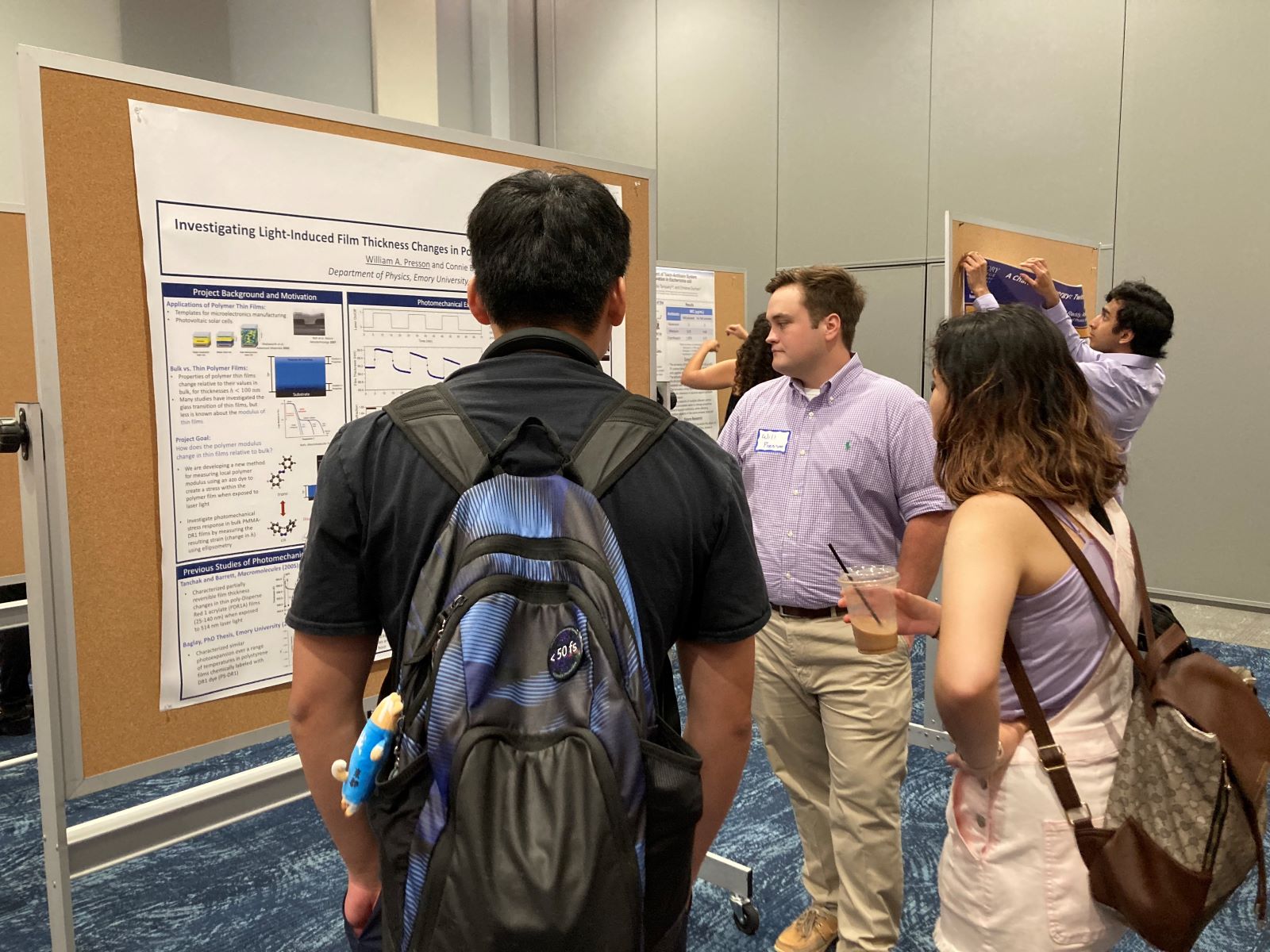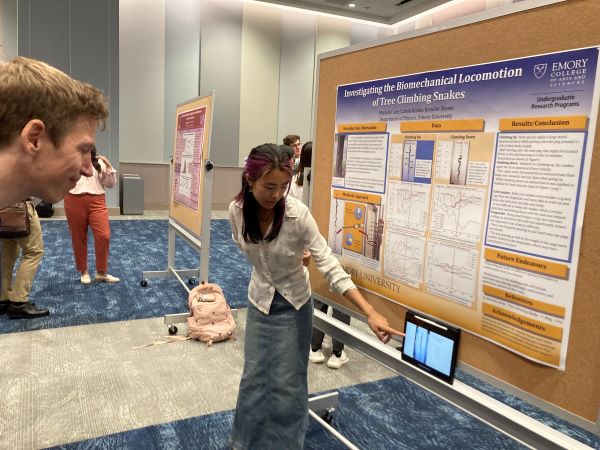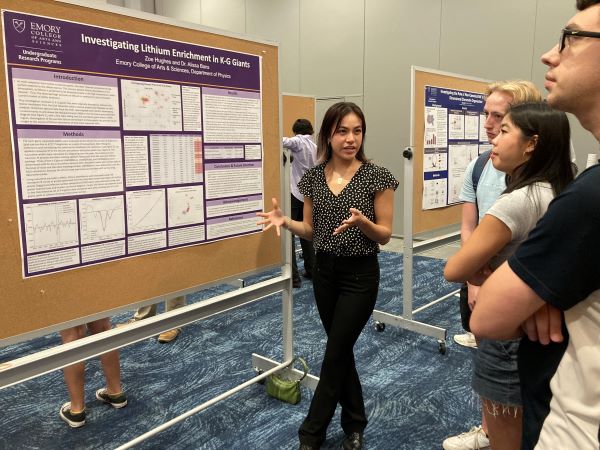Department of Physics Undergraduate Research

If you are interested in doing research in the Physics department, take a look at the Research Advising chart which summarizes each physics faculty’s research interests and preferences, for their research students’ seniority/experience. Also, you can visit our website to explore the myriad of research areas/interest for each faculty. You may contact the faculty directly if you see something that peeks your interest.
There are many opportunities available for undergraduate research in Physics:
- Condensed Matter Physics, Theoretical & Computational Physics and Biophysics are our research concentrated areas. Our faculty work in larger laboratories/groups on many interesting sub-topics within these three areas.
- Science writing and journalism research explores the parallels between the arts and sciences.
- Design, construction and application of new instrumentation, a hallmark of physics research, is supported in several laboratories.
- The DFM Telescope and planetarium in the Mathematics & Science Center allow us to offer research projects in astronomy.
Goals for Undergraduate Research in Physics
Back to top
A research project in experimental or theoretical physics that is performed in one of the laboratories (in the Department of Physics) offers the opportunity to see how the "textbook" knowledge you are learning in class is applied in the pursuit of new physical understanding, and the circumstances under which new insights are gained.
There are two parallel goals for undergraduate research:
1. For you to acquire training in experimental or theoretical approaches of physics research that will benefit a future career in the sciences.
2. Work on a novel research project that may reveal new information about how a physical system works.
Some possible research projects that are available in the Department of Physics vary widely in scope and sophistication. They may follow a promising path of inquiry suggested by a previous or ongoing study, or be an investigation of a new area that appears to offer opportunities for insight. The level of the project is tailored to the experience of the student and the degree of commitment that can be made.

Identify an area of research in the Department that interest you.
After you have identified the research area of interest with a particular faculty, connect with that faculty and arrange a meeting. In some cases, faculty members who have had you in class may invite you to do research in their group. In general, faculty are more interested in students who have taken the basic Physics coursework.
Since the size of the laboratories in our Department are modest, the time commitment for training undergraduate researchers is significant, and faculty generally accept one or two students, at most.
Physics B.S. or B.A. students who maintain at least a 3.5 cumulative GPA may enter the Honors Program in Physics. Honors students are given priority in placement in the laboratories. Students in the Honors Program must sign up for Physics 495, "Honors Research", for one semester prior to the completion of the Honors Program
During the Spring and Fall semesters of the school year, research is typically performed for credit. Students sign up for Physics 499, "Undergraduate Research", for 2-4 credit hours. Although there is not a general rule in our Department, the policy in most groups is that each credit hour is equivalent to 3-4 hours of work in the laboratory per week. This includes time to perform experiments, analyze data, and interpret results.
Progress on a research project requires at least 6-8 hours of research time per week (equivalent to 2 credit hours). For example, experiments involve set up, execution, and clean up, which requires uninterrupted blocks of time of 3 hours or more.
At best, try to arrange your course schedule so that you have blocks of time, and then dedicate these blocks to your research.
Undergraduate research can be performed for credit or for pay.
It may also be possible to perform research for pay. This is typical in the summer. Support may come from the head of the laboratory. Other sources of external funding include the SURE (Summer Undergraduate Research Experience) program, which is administered at Emory.
If you are interested in other research opportunities on campus please click the Undergraduate Research Programs website.
What to Expect from Undergraduate Research
Back to top
The requirements associated with the research projects will vary from group to group. For example, undergraduate researchers in several groups are encouraged to attend group meetings, and are required to keep a detailed laboratory notebook, present the results and conclusions from their projects at the end of the semester (in a short report), and in an informal presentation to the group.
An accurate notebook allows other researchers to repeat your important work, and the written and oral expression of your results develops your science communication skills. Reproducibility and communication of results are cornerstones of progress in science. It's not all hard work. As a contributing member of the research group, you also tap into the "life of the lab", which can include parties and outings.
In the summer, there are weekly inter-lab get- together over lunch, where you can get an idea of what other undergraduates are doing in their laboratories and compare experiences.
Undergraduate research can be a rewarding experience, if you have the desire and time in your schedules to make the commitment. Perhaps you will be the one to make a new discovery!
Check out the research opportunities currently being offered in Emory Physics.